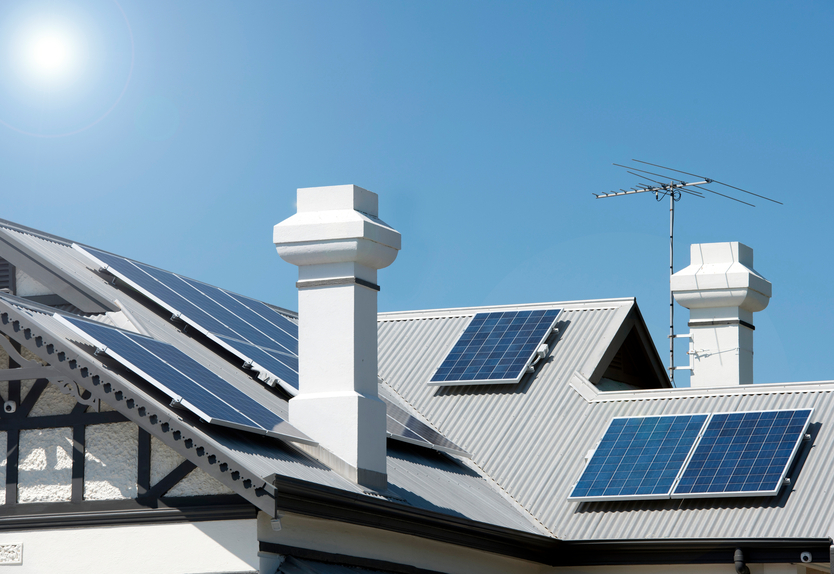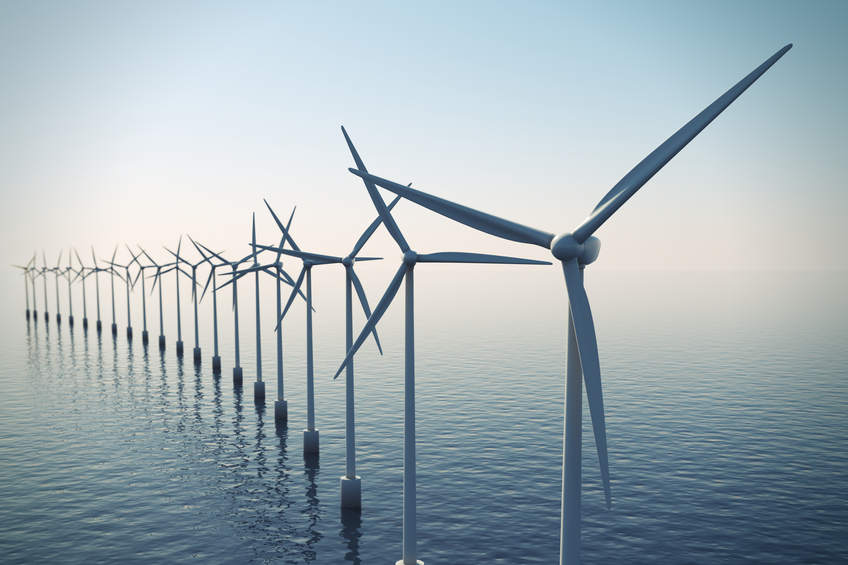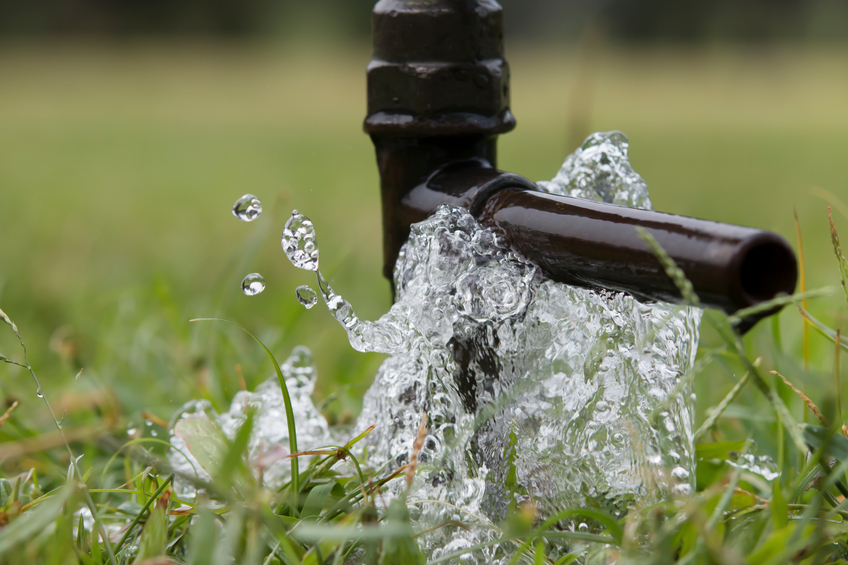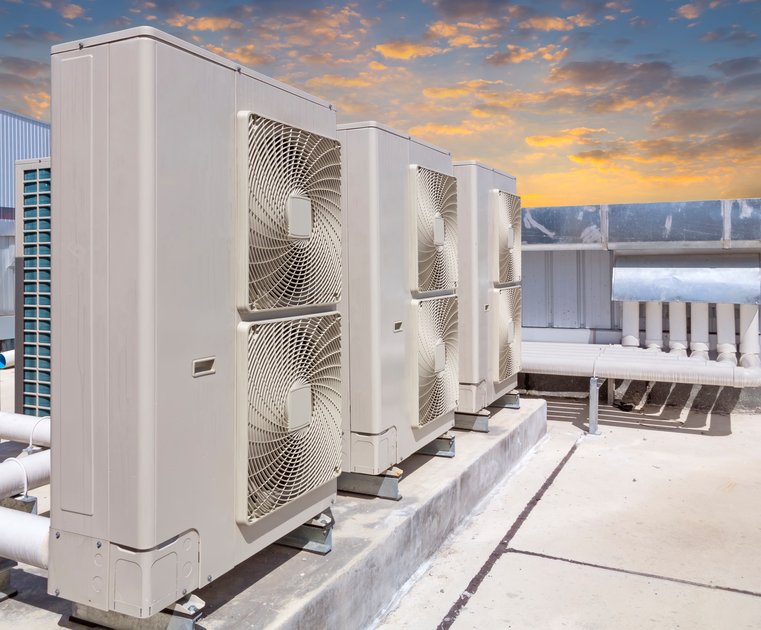Pennsylvania Energy Efficiency and Ethics 24 PDH Discount Package 1
Courses in this Package
Understanding Solar Photovoltaic System Performance (R02-018)
Wind Turbine Technology (R04-009)
Home Energy Savings: A Practical Approach (M09-001)
Water Efficiency Management Guide for Landscaping and Irrigation (C01-025)
Water Efficiency Management Guide for Mechanical Systems (M02-055)
Heating and Cooling System Upgrades (M03-022)
Engineering Ethics for Pennsylvania Professional Engineers (PA2-001)

This online engineering PDH course presents a performance analysis of 75 solar photovoltaic (PV) systems installed at federal sites, conducted by the Federal Energy Management Program (FEMP) with support from National Renewable Energy Laboratory and Lawrence Berkeley National Laboratory.
System data is analyzed for key performance indicators including availability, performance ratio, and energy ratio by comparing the measured production data to modeled production data. The analysis utilizes the National Renewable Energy Laboratory’s System Advisor Model (SAM), which combines a description of the system (such as inverter capacity, temperature derating, and balance-of-system efficiency) with environmental parameters (coincident solar and temperature data) to calculate predicted performance.
The measured performance metrics are useful in that they provide realistic expectations of performance, and owners of existing systems may compare their own measured performance values to the average and focus on corrective actions.
This 2 PDH online course is applicable to mechanical and electrical engineers and energy specialists who are interested in learning more about the performance of solar photovoltaic systems.
This PE continuing education course is intended to provide you with the following specific knowledge and skills:
- Familiarizing with the key performance indicators of PV systems
- Understanding the research methodology of the proposed study
- Analyzing a statistical summary of key performance indicators across a sample of PV systems and drawing conclusions
- Gaining an overview of the future steps and resources for agencies interested in improving photovoltaic system performance
Upon successful completion of the quiz, print your Certificate of Completion instantly. (Note: if you are paying by check or money order, you will be able to print it after we receive your payment.) For your convenience, we will also email it to you. Please note that you can log in to your account at any time to access and print your Certificate of Completion.

This online engineering PDH course provides a brief overview of wind turbine technology and its associated components, discusses the financial considerations and the technological improvements that would be required to increase the reliance on wind energy in the future.
Current turbine technology has enabled wind energy to become a viable power source in today’s energy market. Advancements in turbine technology that have the potential to increase wind energy’s presence are currently being explored through areas of study including reducing capital costs, increasing capacity factors, and mitigating risk through enhanced system reliability.
This 4 PDH online course is intended for renewable, sustainability, mechanical, electrical, and industrial engineers, as well as other technical personnel who are interested in gaining a basic understanding of wind turbine technology.
This PE continuing education course is intended to provide you with the following specific knowledge and skills:
- Familiarizing with the basic configuration of the modern wind turbine
- Knowing the options in improving wind turbine technology
- Understanding the technical and financial risks involved in wind technology
- Familiarizing with offshore wind technology
- Learning about distributed wind technology (DWT) and their applications
Upon successful completion of the quiz, print your Certificate of Completion instantly. (Note: if you are paying by check or money order, you will be able to print it after we receive your payment.) For your convenience, we will also email it to you. Please note that you can log in to your account at any time to access and print your Certificate of Completion.

This online engineering PDH course provides information on a wide variety of energy-related topics, ranging from simple weatherization, insulation, heating and cooling system improvements in homes, to installing and maintaining efficient water heaters, home appliances and solar panels.
Every year, a typical family in the United States spends around half of its home energy budget on heating and cooling. Unfortunately, many of those dollars are often wasted, because conditioned air escapes through leaky ceilings, walls and foundations, or flows through inadequately insulated attics, pipes, exterior walls and basements. In addition, many appliances, heating systems and air conditioners aren’t properly maintained, are old and inefficient, compared to models being sold today.
By properly maintaining your existing heating and cooling equipment (or replacing aging units with high-efficiency models), addressing weatherization and insulation issues at your house and getting into the habit of using energy efficiently all the time, you can save 10 to 30 percent (or more) on your utility bills every year. You will also help reduce pollution at utility plants that use fossil fuels to generate electricity.
This 9 PDH online course is applicable to electrical and mechanical engineers as well as energy specialists who are interested in learning more about home energy-saving considerations and the collection of systems that work together to achieve peak energy savings and to increase a home’s overall comfort.
This PE continuing education course is intended to provide you with the following specific knowledge and skills:
- Familiarizing with the major sources of air leaks and energy use in a typical home
- Learning about different sealing and insulating materials, their main characteristics and applications
- Understanding the energy saving considerations for heating and cooling systems
- Learning about a set of energy-related units, ratios and terminologies
- Learning about water heating systems and the different approaches to lowering water-heating costs
- Familiarizing with energy-efficient tips and practices for major home appliances
- Familiarizing with the building blocks of solar PV systems
- Gaining a general overview of contracts, installation, maintenance and monitoring of solar energy systems
Upon successful completion of the quiz, print your Certificate of Completion instantly. (Note: if you are paying by check or money order, you will be able to print it after we receive your payment.) For your convenience, we will also email it to you. Please note that you can log in to your account at any time to access and print your Certificate of Completion.

This online engineering PDH course provides basic information about landscaping and irrigation and discusses the different approaches and technologies utilized to ensure efficient outdoor water use.
Most of the residential outdoor water in the United States is used for landscape irrigation. In fact, as much as half the residential outdoor water is wasted through evaporation, wind, or runoff. Many factors are either directly or indirectly responsible for this loss among which; improper irrigation system design and installation as well as poor maintenance. Thus, improved landscaping, effective maintenance practices and efficient irrigation equipment can significantly reduce water use, prevent its loss and decrease costs from property landscapes.
This 1 PDH online course is applicable to environmental, civil and landscape engineers who are interested in improving outdoor water efficiency by learning proper landscape design, irrigation techniques and the different equipment that help reduce water use.
This PE continuing education course is intended to provide you with the following specific knowledge and skills:
- Familiarizing with the concept of outdoor water use
- Understanding the most common problems in improper irrigation systems
- Learning about landscape maintenance for water-efficient landscaping
- Learning about irrigation maintenance for water-efficient landscaping
- Exploring irrigation system components and the different technologies used
- Knowing about water efficiency measures through various irrigation controllers
Upon successful completion of the quiz, print your Certificate of Completion instantly. (Note: if you are paying by check or money order, you will be able to print it after we receive your payment.) For your convenience, we will also email it to you. Please note that you can log in to your account at any time to access and print your Certificate of Completion.

This online engineering PDH course presents guidelines on how to reduce mechanical system water use in residential buildings. Mechanical systems are frequently utilized to provide heating and cooling for residential properties. They typically fall into two categories: centralized and decentralized systems.
Centralized mechanical systems provide heating and cooling from a central location, such as a mechanical room or utility penthouse. These systems are more common in mid- and high-rise multifamily properties and can include cooling towers, boilers, and steam systems, each of which uses water as the heat transfer medium. As a result, the use of water for building heating and cooling can be significant and using sound management practices is a good opportunity for water savings.
Decentralized mechanical systems treat each unit of a multifamily property as its own space, as if each unit were a stand-alone single-family residence. These systems do not typically use process water, so they are not the focus of this water efficiency management guide.
This 2 PDH online course is intended for mechanical, environmental and civil engineers, as well as other technical personnel who are interested in learning more about reducing water use in mechanical systems.
This PE continuing education course is intended to provide you with the following specific knowledge and skills:
- Understanding the basics principles behind single-pass cooling, cooling towers and boiler/steam systems
- Understanding mechanical system water use
- Familiarizing with the maintenance and best management practices
- Knowing the mechanical systems retrofit and replacement options
- Familiarizing with the water savings calculations and assumptions
Upon successful completion of the quiz, print your Certificate of Completion instantly. (Note: if you are paying by check or money order, you will be able to print it after we receive your payment.) For your convenience, we will also email it to you. Please note that you can log in to your account at any time to access and print your Certificate of Completion.

This online engineering PDH course identifies the opportunities for improving the performance of the heating and cooling system based on the type of system that is in place.
Heating and cooling systems are the largest single consumers of energy in buildings. These systems condition the air within a building so that occupants are comfortable. Heating and cooling systems consist mainly of chillers, boilers, cooling towers, and pumps. There are central heating and cooling systems, and unitary systems that combine heating and cooling. Opportunities exist for improvement to both central and unitary systems.
This 3 PDH online course is applicable to engineers, contractors, designers and other technical professionals who are involved in the retrofit of existing heating and cooling systems.
This PE continuing education course is intended to provide you with the following specific knowledge and skills:
- Understanding the best opportunities available for upgrading central cooling systems including chillers, cooling towers, water side economizers and pumps
- Understanding the best opportunities available for upgrading central heating systems including boilers and furnaces
- Understanding the best opportunities available for unitary systems including packaged or rooftop units, split system packaged units, air source heat pumps and water loop heat pump systems
- Learning about new strategies aimed at saving energy such as geothermal heat pumps, district cooling and heating, radiant heating and cooling, cool storage, high temperature difference distribution, evaporative cooling, and non-electric cooling
In this professional engineering CEU course, you need to review "Heating and Cooling System Upgrades" of the Energy Star Building Manual. (Energy Star is a joint program of the U.S. Environmental Protection Agency and the U.S. Department of Energy).
Upon successful completion of the quiz, print your Certificate of Completion instantly. (Note: if you are paying by check or money order, you will be able to print it after we receive your payment.) For your convenience, we will also email it to you. Please note that you can log in to your account at any time to access and print your Certificate of Completion.

This online engineering PDH course presents the laws and rules of ethics and professional responsibility governing the practice of engineering in the State of Pennsylvania. Excerpts from Pennsylvania ACT 367 as well as Chapter 37 of the Pennsylvania Code, which relate to the rules of profession conduct, continuing education requirements, proper use of seal and other pertinent regulatory provisions are presented in this course.
Engineering ethics is (1) the study of moral issues and decisions confronting individuals and organizations involved in engineering and (2) the study of related questions about moral conduct, character, ideals and relationships of peoples and organizations involved in technological development (Martin and Schinzinger, Ethics in Engineering).
This 2 PDH online course is applicable to Pennsylvania Professional Engineers who face different situations on daily basis while practicing engineering. This course will provide moral and ethical guidance to engineers in their decision making process. Most importantly, it will provide engineers with insight on how to respect and protect their profession with utmost professionalism.
This PE continuing education course is intended to provide you with the following specific knowledge and skills:
- Overview of the laws and rules regulating to the practice of engineering in the State of Pennsylvania and their application to Professional Engineers
- Understanding the roles of the Pennsylvania Board and its disciplinary authority
- Learning about engineering ethics and the rules of professional conduct and responsibility
- Understanding the continuing education requirements, proper use of seal and more in the State of Pennsylvania
- Understanding the Pennsylvania Board disciplinary process
- Review of the disciplinary cases and along the range of violations and corresponding penalties imposed by the Pennsylvania Board
In this professional engineering CEU course, you need to review the course document titled "Engineering Ethics for Pennsylvania Professional Engineers".
Upon successful completion of the quiz, print your Certificate of Completion instantly. (Note: if you are paying by check or money order, you will be able to print it after we receive your payment.) For your convenience, we will also email it to you. Please note that you can log in to your account at any time to access and print your Certificate of Completion.